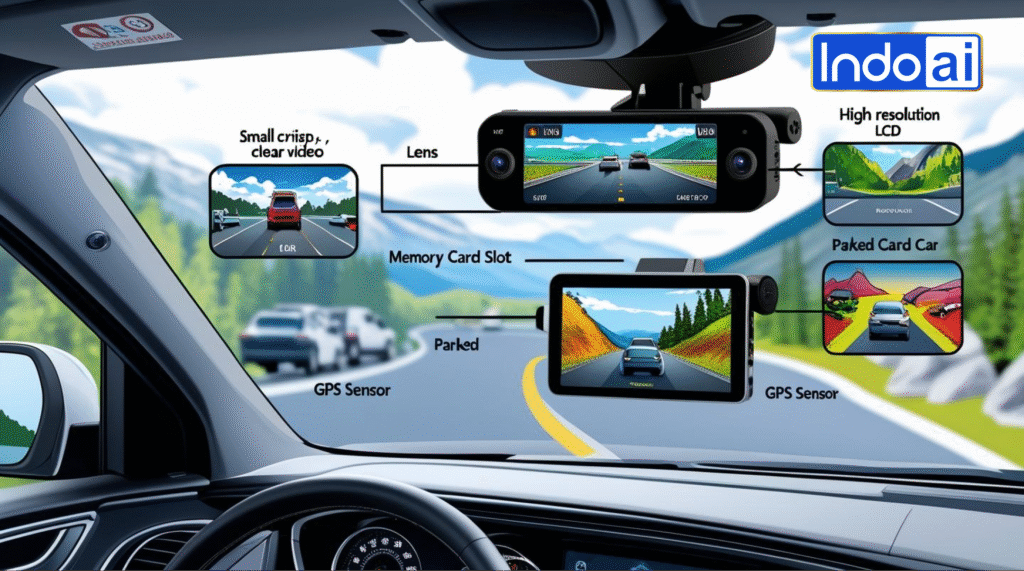Dash cameras, also known as dashboard cameras or dashcams, are compact video recording devices typically mounted on a vehicle’s dashboard or windshield. They are designed to record video footage of the road ahead (and sometimes behind) while a vehicle is in motion. Here’s an overview of what dash cameras are, why they are used, when to use them, and where they are commonly deployed
Dash cameras, also known as dashboard cameras or dashcams, are compact video recording devices typically mounted on a vehicle’s dashboard or windshield. They are designed to record video footage of the road ahead (and sometimes behind) while a vehicle is in motion. Here’s an overview of what dash cameras are, why they are used, when to use them, and where they are commonly deployed

What are Dash Cameras?
Dash cameras are small, self-contained video recording devices equipped with a camera lens and a memory storage system. They are typically powered by a vehicle’s electrical system and record video continuously or in response to specific events, such as sudden braking or impacts.
Why Use Dash Cameras?
Few of the reasons for preferring a Dashcam over others are:
Evidence in Accidents: One of the primary reasons for using dash cameras is to provide video evidence in case of accidents or collisions. The recorded footage can help determine fault and assist in insurance claims.
Security: Dash cameras can deter theft or vandalism when the vehicle is parked. Some models have parking mode features that activate the camera when motion or impacts are detected.
Driver Monitoring: For commercial or fleet vehicles, dash cameras can monitor driver behavior, ensuring safe driving practices and compliance with company policies.
Capturing Memorable Moments: Dash cameras can also capture unexpected events, beautiful scenery, or memorable moments during road trips.
When to Use Dash Cameras?
These type of cameras are used in applications such as:
Accident Documentation: Dash cameras are especially valuable in situations where accidents or collisions may occur, such as daily commuting or long-distance travel.
Fleet Management: Commercial vehicle operators often use dash cameras to monitor drivers, improve safety, and manage their fleet efficiently.
Security: Dash cameras can provide added security when parking in public areas, helping to identify vandals, thieves, or hit-and-run incidents.
Touring and Road Trips: Dash cameras can capture scenic views and memorable moments during road trips and vacations.
Driver Training: Some driving schools and instructors use dash cameras to review and provide feedback on student drivers’ performance.
Where are Dash Cameras Commonly Deployed?
Some places where dashcams are found usually includes:
Personal Vehicles: Many private car owners use dash cameras for personal safety and security, as well as to document their driving experiences.
Commercial Vehicles: Businesses with fleets of vehicles, such as delivery trucks, taxis, and rideshare services, often deploy dash cameras for safety, liability protection, and fleet management.
Rental Cars: Rental car companies may install dash cameras to monitor vehicle usage and prevent misuse.
Public Transportation: Some public transportation vehicles, like buses and trams, use dash cameras for passenger safety and incident documentation.
Law Enforcement: Some police vehicles are equipped with dash cameras to record interactions with the public and document events during traffic stops and pursuits.
In summary, dash cameras are small video recording devices primarily used in vehicles to document accidents, enhance security, monitor driving behavior, and capture memorable moments. They have become increasingly popular for both personal and commercial use due to their ability to provide valuable video evidence and promote safer driving practices.




